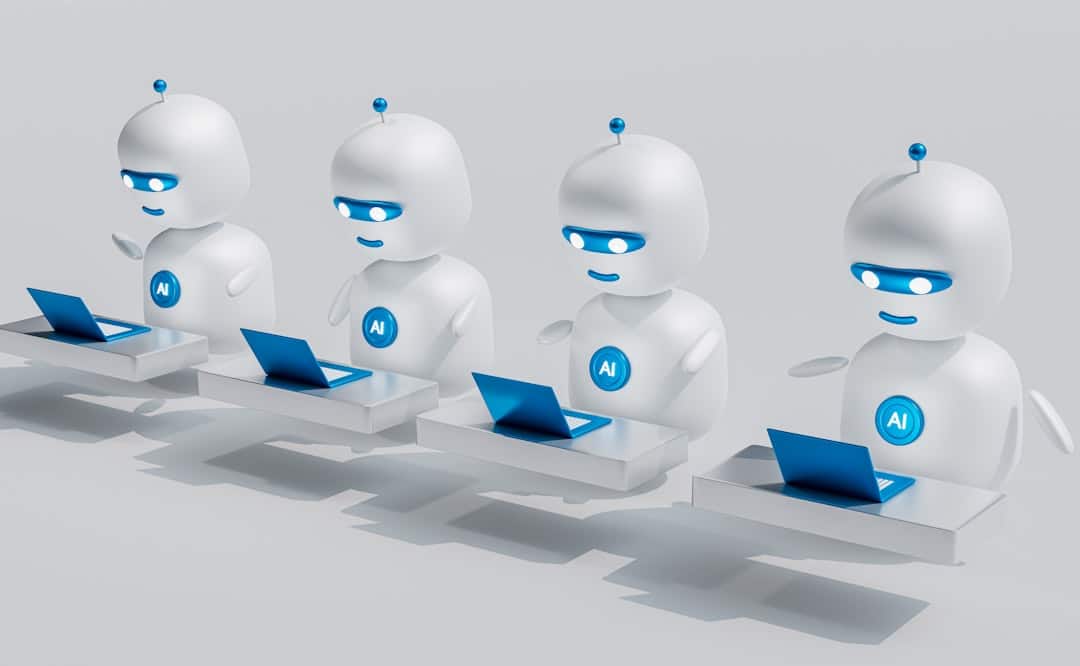The advent of artificial intelligence (AI) has revolutionized numerous sectors, and technical support is no exception. AI chatbots, which are software applications designed to simulate human conversation, have emerged as a pivotal tool in the realm of customer service. These intelligent systems can engage with users in real-time, providing assistance and resolving issues without the need for human intervention.
The integration of AI chatbots into technical support frameworks has not only streamlined operations but has also transformed the way businesses interact with their customers. As organizations increasingly rely on technology to enhance their service offerings, the role of AI chatbots has become more pronounced. They are capable of handling a multitude of inquiries simultaneously, which is particularly beneficial in high-demand environments.
By leveraging natural language processing (NLP) and machine learning algorithms, these chatbots can understand user queries, provide relevant information, and even learn from past interactions to improve future responses. This evolution in customer support mechanisms signifies a shift towards more efficient, scalable, and user-friendly solutions.
Key Takeaways
- AI chatbots are revolutionizing technical support by providing instant and personalized assistance to customers.
- Using AI chatbots for technical support can lead to cost savings, improved response times, and increased customer satisfaction.
- AI chatbots improve efficiency in technical support by automating repetitive tasks, providing instant solutions, and reducing human error.
- AI chatbots play a crucial role in providing 24/7 technical support, ensuring that customers can get assistance at any time of the day.
- AI chatbots have a significant impact on customer satisfaction in technical support by providing quick and accurate solutions to customer queries.
The Benefits of Using AI Chatbots for Technical Support
Instant Responses for Enhanced User Experience
One of the most significant advantages of employing AI chatbots in technical support is their ability to provide instant responses to customer inquiries. In an age where consumers expect immediate solutions, chatbots can deliver information at lightning speed, reducing wait times and enhancing user experience.
Reducing Pressure on Support Teams
This immediacy not only satisfies customer needs but also alleviates pressure on support teams.
This 24/7 availability is particularly advantageous for global companies with clients across different regions.
Enhancing Reputation and Efficiency
By providing continuous support, businesses can cater to a wider audience and enhance their reputation for reliability. Additionally, chatbots can handle repetitive tasks such as password resets or account inquiries, freeing up human agents to focus on more complex issues that require nuanced understanding and empathy.
How AI Chatbots Improve Efficiency in Technical Support

Efficiency is a cornerstone of effective technical support, and AI chatbots significantly enhance this aspect by automating routine tasks. By managing common inquiries and troubleshooting steps, chatbots reduce the workload on human agents, allowing them to dedicate their time to more intricate problems that necessitate human insight. For example, if a user encounters a common error message while using a software application, the chatbot can quickly provide troubleshooting steps or direct the user to relevant resources without human intervention.
Furthermore, AI chatbots can analyze vast amounts of data to identify trends and patterns in customer inquiries. This analytical capability enables organizations to proactively address recurring issues and improve their products or services based on user feedback. For instance, if a particular software feature consistently generates questions or complaints, the development team can prioritize enhancements or create comprehensive guides to address these concerns.
By leveraging data-driven insights, businesses can refine their offerings and enhance overall customer satisfaction.
The Role of AI Chatbots in Providing 24/7 Technical Support
The ability of AI chatbots to provide round-the-clock support is one of their most compelling features. In today’s fast-paced digital landscape, customers expect assistance at any hour, and chatbots fulfill this demand effectively. Unlike traditional support systems that operate within set hours, AI chatbots are always available to address user queries, ensuring that help is just a click away at any time of day or night.
This continuous availability not only meets customer expectations but also enhances operational efficiency for businesses. With chatbots handling inquiries during off-peak hours or outside regular business times, organizations can maintain a high level of service without the need for extensive staffing. This is particularly beneficial for companies with limited resources or those looking to optimize their operational costs while still delivering exceptional customer service.
The Impact of AI Chatbots on Customer Satisfaction in Technical Support
Customer satisfaction is paramount in any service-oriented industry, and AI chatbots play a crucial role in enhancing this aspect of technical support. By providing quick and accurate responses to inquiries, chatbots contribute to a more positive user experience. Customers appreciate the immediacy of assistance and the convenience of accessing help without navigating through lengthy phone menus or waiting for email replies.
Moreover, the personalized nature of interactions with AI chatbots can further elevate customer satisfaction levels. Advanced chatbots utilize machine learning algorithms to remember past interactions and tailor responses based on individual user preferences and history. For example, if a customer frequently asks about specific features or services, the chatbot can proactively offer relevant information during future interactions.
This level of personalization fosters a sense of connection between the user and the brand, ultimately leading to increased loyalty and satisfaction.
Challenges and Limitations of AI Chatbots in Technical Support

Limitations in Complex Queries
One significant concern is their inability to fully comprehend complex queries that require nuanced understanding or emotional intelligence. While chatbots excel at handling straightforward questions, they may struggle with intricate issues that necessitate human empathy or critical thinking.
The Importance of Human Interaction
For instance, a customer experiencing frustration due to a persistent technical problem may require a compassionate response that a chatbot cannot provide. Additionally, there is the risk of over-reliance on chatbots leading to diminished human interaction in customer service. While automation can enhance efficiency, it is essential for businesses to strike a balance between chatbot assistance and human support.
Escalation Pathways
Some customers may prefer speaking with a live agent when dealing with sensitive issues or when they feel that their concerns are not being adequately addressed by automated systems. Therefore, organizations must ensure that there are clear pathways for users to escalate their inquiries to human representatives when necessary.
Best Practices for Implementing AI Chatbots in Technical Support
To maximize the benefits of AI chatbots in technical support, organizations should adhere to several best practices during implementation. First and foremost, it is crucial to define clear objectives for the chatbot’s role within the support framework. Understanding what specific tasks the chatbot will handle—such as answering FAQs or guiding users through troubleshooting—will help shape its design and functionality.
Additionally, continuous training and updates are essential for maintaining the effectiveness of AI chatbots. Regularly updating the chatbot’s knowledge base with new information about products or services ensures that it remains relevant and capable of addressing current customer inquiries. Furthermore, incorporating user feedback into the chatbot’s development process can lead to improvements in its performance and user experience.
Another best practice involves integrating the chatbot with existing support systems and tools. By ensuring seamless communication between the chatbot and other platforms—such as ticketing systems or knowledge bases—organizations can create a more cohesive support experience for users. This integration allows for efficient data sharing and ensures that customers receive consistent information regardless of how they choose to engage with support.
The Future of AI Chatbots in Technical Support
As technology continues to evolve at an unprecedented pace, the future of AI chatbots in technical support appears promising yet complex. Advancements in natural language processing and machine learning are expected to enhance the capabilities of chatbots significantly. Future iterations may possess improved contextual understanding, enabling them to handle more sophisticated queries with greater accuracy.
Moreover, as businesses increasingly adopt omnichannel strategies, AI chatbots will likely play an integral role in providing seamless support across various platforms—be it social media, websites, or mobile applications. This cross-channel functionality will allow customers to engage with support services through their preferred mediums while receiving consistent assistance. The integration of AI chatbots with emerging technologies such as augmented reality (AR) could also reshape technical support experiences.
For instance, customers could receive real-time visual guidance through AR interfaces while interacting with chatbots during troubleshooting processes. This innovative approach could bridge the gap between automated assistance and hands-on support, ultimately enhancing user satisfaction. In conclusion, while challenges remain in fully realizing the potential of AI chatbots in technical support, their benefits are undeniable.
As organizations continue to refine their approaches and embrace technological advancements, AI chatbots will undoubtedly play an increasingly vital role in shaping the future landscape of customer service.
If you’re interested in learning more about technology and cybersecurity, you may want to check out this article on the best antivirus software in 2023. It provides valuable insights into how to protect your devices from cyber threats. Additionally, if you’re a fan of Samsung products, you should read this article on the Samsung Galaxy S22 to discover the latest features and capabilities of this popular smartphone. And for those interested in startup engineering processes, this article offers tips on how to recreate the engineering process to save a failing startup.
FAQs
What is an AI chatbot?
An AI chatbot is a computer program that uses artificial intelligence to conduct a conversation with users, typically through text or voice interactions. These chatbots are designed to understand and respond to user queries in a natural and human-like manner.
How are AI chatbots used in technical support?
AI chatbots are used in technical support to automate and streamline the process of resolving customer issues. They can handle common technical queries, provide troubleshooting assistance, and even escalate more complex issues to human support agents when necessary.
What are the benefits of using AI chatbots in technical support?
Some benefits of using AI chatbots in technical support include 24/7 availability, faster response times, consistent and accurate information delivery, and the ability to handle a large volume of customer queries simultaneously.
Are AI chatbots replacing human support agents in technical support?
AI chatbots are not replacing human support agents in technical support, but rather complementing their work. Chatbots can handle routine and repetitive tasks, allowing human agents to focus on more complex and high-value customer interactions.
How do AI chatbots improve the customer support experience?
AI chatbots improve the customer support experience by providing instant responses, personalized interactions, and consistent support across different channels. They also help in reducing wait times and improving overall customer satisfaction.

